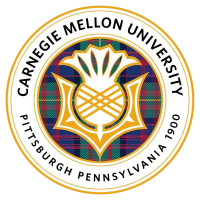The Ivy Scholars guide to Carnegie Mellon University’s culture, admissions, and other essential information for prospective students and their families.
Location: Pittsburgh, Pennsylvania
Mascot: Scotty the Scottie Dog
Type: Private Research Institution
Population: 14,000 (7,000 undergrads)

Carnegie-Mellon was founded in 1900 in Pittsburgh, PA by Andrew Carnegie and is a private non-profit research university. It merged with the Mellon Institute of Industrial Research in 1967. The institution has a distinct interdisciplinary approach to research and education. Innovation through technology is a cornerstone of the university.

Year Founded: 1900
4 Year Graduation Rate: 72%
Gender Distribution: 50% male, 50% female
Acceptance Rate: 22%
Residency: 30% in state, 49% out of state, 11% international
Location Type: Urban
Schedule System: Semesters
Student/Faculty Ratio: 13:1
Average Class Size: 25
Demographics: 37% Other or unknown, 30% Caucasian, 30% Asian, 8% Hispanic, 5% Black
US News Rankings:
Independent Rankings:
Application Deadlines:
Notification Dates:
Acceptance Rates:
Average Applicant Pool: 38,000
Average Number of Applicants Accepted: 4,500
Average Number Enrolled: 1,300
Application Systems: Common App
Average GPA: 3.84 weighted
SAT Scores: 25th% – 1460, 75th% – 1560
ACT Scores: 25th% – 33, 75th% – 35
*Test mandatory. Writing sections optional.
Demonstrated Interest: Carnegie Mellon does not consider demonstrated interest.
Recommendation Letter Policies: They require two letters of recommendation: one from a high school counselor and one from a teacher. They will accept a third recommendation from a teacher or other recommender, but will require the committees to consider only two recommendations in the decision-making process.
Carnegie Mellon Essay Prompts:
Special Notes:
Transfer:
Admissions Criteria:
The most important factors that admissions considers are: course rigor, extracurriculars, and test scores.
Factors which admissions considers important are: leadership, outside recognition, GPA, recommendations, and essays.
While interviews are optional, they are considered.
For students applying to the College of Fine Arts, the portfolios or auditions they submit are one of the most important components of their application.
Athletic recruiting is considered, although athletes still have to meet the academic criteria in order to be admitted.
What is Carnegie Mellon Looking for?
The three factors which the school focuses on are school record, extracurricular involvement, and test scores. While they use a holistic review process for applications, these categories are the ones which the school examines first and most intensely. They want to ensure students are able to succeed academically, and they further appreciate data, which drives their reliance on test scores as a metric.
The school wants driven and motivated students, who are intelligent, passionate, and creative. Their school is very specialized, and students should have a good idea of what they want to study, and which school will fit them best. Applications are considered based on which school the student applies to, and judged accordingly.
The different schools have very different acceptance rates, and the College of Fine Arts further subdivides students by school within it, making school selection very important. It is also very difficult to change schools after admittance, although taking a secondary major in another school is possible.
The school’s strategic plan emphasizes an increase in diversity in the student body, and and increased focus on interdisciplinary studies. The school is launching both funding and recruitment initiatives to support these goals. Students interested in an interdisciplinary approach will stand out.
Carnegie Mellon Strategy:
The most important part of admissions for Carnegie Mellon is determining which of the schools you are best suited for, and which one makes the most sense to apply to. Because admission is decided by school, a good candidate for one is not necessarily a good candidate for another. Your strengths as a student should line up with those of the school and major you are applying for. Two of the supplemental essays also address this point and these should reflect what admissions officers see in your transcript and activities list.
It is quite difficult to change between schools after you have been accepted, so make sure you are applying to the school which best corresponds to your interests. The school has a STEM focus overall, so the schools studying the humanities and social sciences are significantly easier to gain acceptance to. If you wish to major in one of these fields, you should consider Carnegie-Mellon. An exception is business students, as students may take a second major in business, even if they have been admitted to another school. This is difficult, but may be worth it if your candidacy positions you better for humanities or social sciences than business.
Applying Early Decision will boost your chances of admission slightly, although the criteria are not relaxed, there is merely a smaller pool of candidates relative to the number of slots. The school also tries to keep admissions rates consistent between ED and RD, though the ED acceptance rate often does end up being higher.
Since the school values test scores so highly, retaking the test is a good idea if your scores are lower than the average. Don’t sweat over ten points, but if you believe you can make reasonable gains for the effort you invest, then retaking standardized tests is the simplest way to boost your chances of admission.
Schools:
Core Requirements:
Courses of Study:
AP Credit Policies:

Honors Programs:
Research Availability:
Study Abroad:
Business Options:
Pre-Med Options:
Pre-Law Options:
Computer Science Options:
Additional Specialty Programs:
Programs for High Schoolers:

School Motto: My heart is in the work.
Mission and Values:
House System:
Carnegie Mellon offers a variety of housing options including residence halls, apartments, suite-style housing and full houses. Some residences are designated for first-year students, some are primarily upperclassmen, and others are a mix of students.
Housing Statistics:
Campus & Surrounding Area:
The 140 acre campus is surrounded by many neighborhoods giving it an impression of a suburban region, however it is only 3 miles from downtown Pittsburgh. A large grassy area called “the Cut” forms the backbone of campus. The campus has plenty of green space for students.
Transportation:
Traditions:
Student-Run Organizations:
Sports:
Greek Life:
Fraternities and sororities have a long, rich tradition with roughly 18% of undergraduates participating in 23 active Greek Chapters.
Nightlife:

Yearly Cost of Attendance:
Financial Aid:
Financial Aid and the Undergraduate Aid Process take into consideration various circumstances for the best outcome for aid which is based on a calculation of income to assess needs.
Scholarships:
Carnegie Mellon doesn’t award merit scholarships, except for limited performance-based scholarships awarded by the School of Drama and School of Music, which are included in a student’s financial aid offer. To be considered for all available financial aid, you must submit the required financial aid documents.

Ivy Scholars is the leading educational consultant in Sugar Land, Texas, providing admissions coaching, test prep, and more to help students enroll at top tier schools.

Call us now: +1 (281) 215-5148
.
Get expert tips, admissions updates, and resources delivered straight to your inbox.


